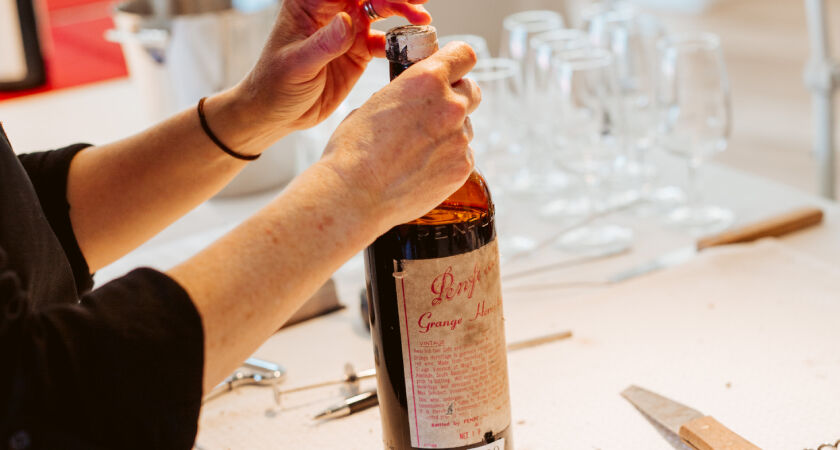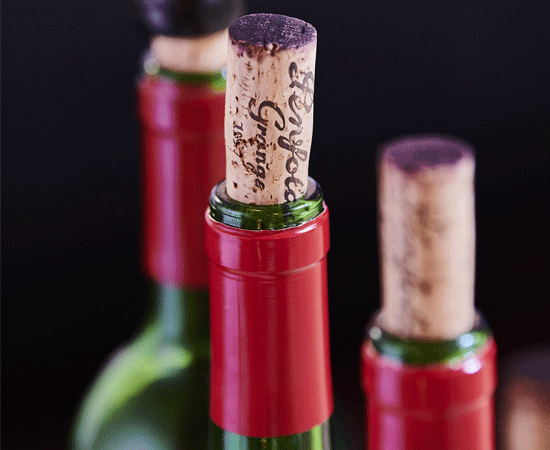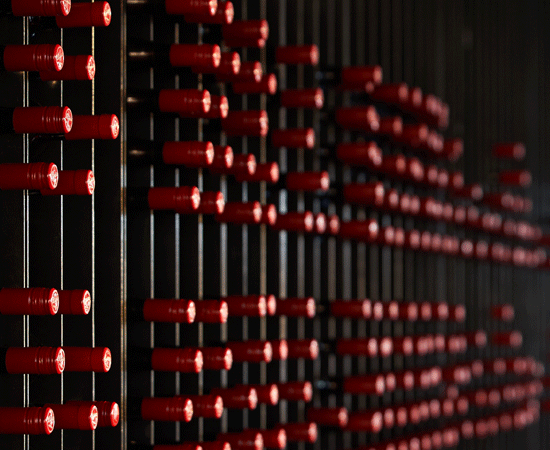一起开启您的传奇吧。

THE PENFOLDS GUIDE TO DECANTING WINE
Why and when to decant your wine
While not every wine needs to be decanted, most quality or aged red wines will benefit from it. The decision ultimately lies with you, however, should you wish to decant your wine, we recommend a few simple steps to ensure the best result.
Why should I start decanting my wine?
There are two good reasons to decant a wine. One is to separate the clear wine from any sediment that may have formed in the bottle – as some wines mature, they can develop a heavy deposit, but this is completely natural and will happen to most aged red wines.
Another is to allow the wine to “breathe”, which may also benefit young wines without sediment as the process allows oxygen to come into contact with the wine. This oxygen contact “opens” the wine up allowing it to show at its best.

How to open your wine
Screw caps need little instruction to open. Wines sealed under these closures tend to retain their youthful vitality much longer than those under cork, though there are arguments in favour of each.
For wines under cork, a two-stepped waiters’ friend corkscrew is what we recommend on most occasions. For significantly aged wines, we often use an Ah-so cork puller or two long corkscrews.
Decanting tips
Firstly, stand the bottle up for a few hours (or preferably, days) before you open it. This will allow any sediment to settle at the bottom of the bottle.
Before decanting wine, we suggest you pour a small amount out into a wine glass. Understanding the wine’s state upon its first opening will help guide your decanting decision.
The timing allocated to each wine will differ depending on its style, varietal and age. All of our red wines will benefit from at least 30 minutes rest after being decanted, with two hours being a good average to work around.
We recommend all our red wines are double decanted. To do this, open the bottle carefully and slowly decant the wine into a clean jug in a continuous stream, ensuring the sediment is not disturbed. Then simply rinse the original bottle out with clean water to dispose of all the residual sediment. Once clean, hold the bottle upside down until all the water has completely drained out.
Using a clean funnel carefully refill it from the decanter. This double aeration of the wine will also help the wine open up, however with very old wines it is advisable to trickle the wine very carefully and slowly down the sides of the decanter and bottle to minimise splashing and aeration.
About Double-Decanting
Double decanting describes the process of decanting a wine twice, once into a decanter and then subsequently into a clean wine bottle. To learn more about the process and benefits of double decantation, learn from Penfolds global ambassador Jamie Sach in the video below.
Should white wines be decanted?
The general consensus is that you should not decant white wines because they react much too rapidly with the open air. Some begin to lose their freshness and vitality within just 15 minutes of decanting.
Yattarna and Bin A Chardonnay, however, are somewhat of an exception. Being wines of impeccable balance, concentration and restrained power, we often decant them to release more expressive aromas and flavours.
Should you choose to do the same, we advise selecting a decanter with an upright frame and a narrow base as to restrict its contact with the air.
Enjoy the process
When decanting, we advise you to take care, take your time and take some tastes along the way. By decanting your wines appropriately, you’re taking steps to ensuring you get the very best experience possible.
FREQUENTLY ASKED QUESTIONS ABOUT DECANTING WINE
Most quality or aged red wines benefit from decanting. Decanting separates clear wine from sediment – naturally forming as wines mature – a common occurrence in aged reds. Decanting also allows the wine to ‘breathe,’ which can enhance young wines without sediment. The introduction of oxygen opens up the wine, allowing it to express its full character and complexity. By decanting, you ensure the wine shows at its best, enhancing your tasting experience.
The general consensus is that you should not decant white wines, as they react too quickly with open air, often losing their freshness and vitality within just 15 minutes. However, Yattarna and Bin A Chardonnay are notable exceptions. These wines, known for their impeccable balance, concentration, and restrained power, can benefit from decanting, which helps release more expressive aromas and flavours.
Understanding how to decant wine and the nuances of decantation ensures the wine expresses its full potential, offering a refined and enjoyable experience. Before decanting wine, pour a small amount into a glass to gauge its initial state, which will help guide your decanting decision. All our red wines will benefit from at least 30 minutes rest after being decanted, with two hours being a good average.



